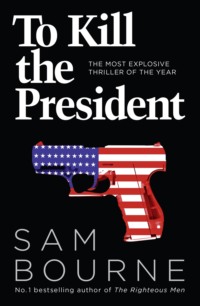To Kill the President: The most explosive thriller of the year

Добавить В библиотекуАвторизуйтесь, чтобы добавить
Добавить отзывДобавить цитату
To Kill the President: The most explosive thriller of the year
Вы ознакомились с фрагментом книги.
Для бесплатного чтения открыта только часть текста.
Приобретайте полный текст книги у нашего партнера:
Всего 10 форматов
Авторизация